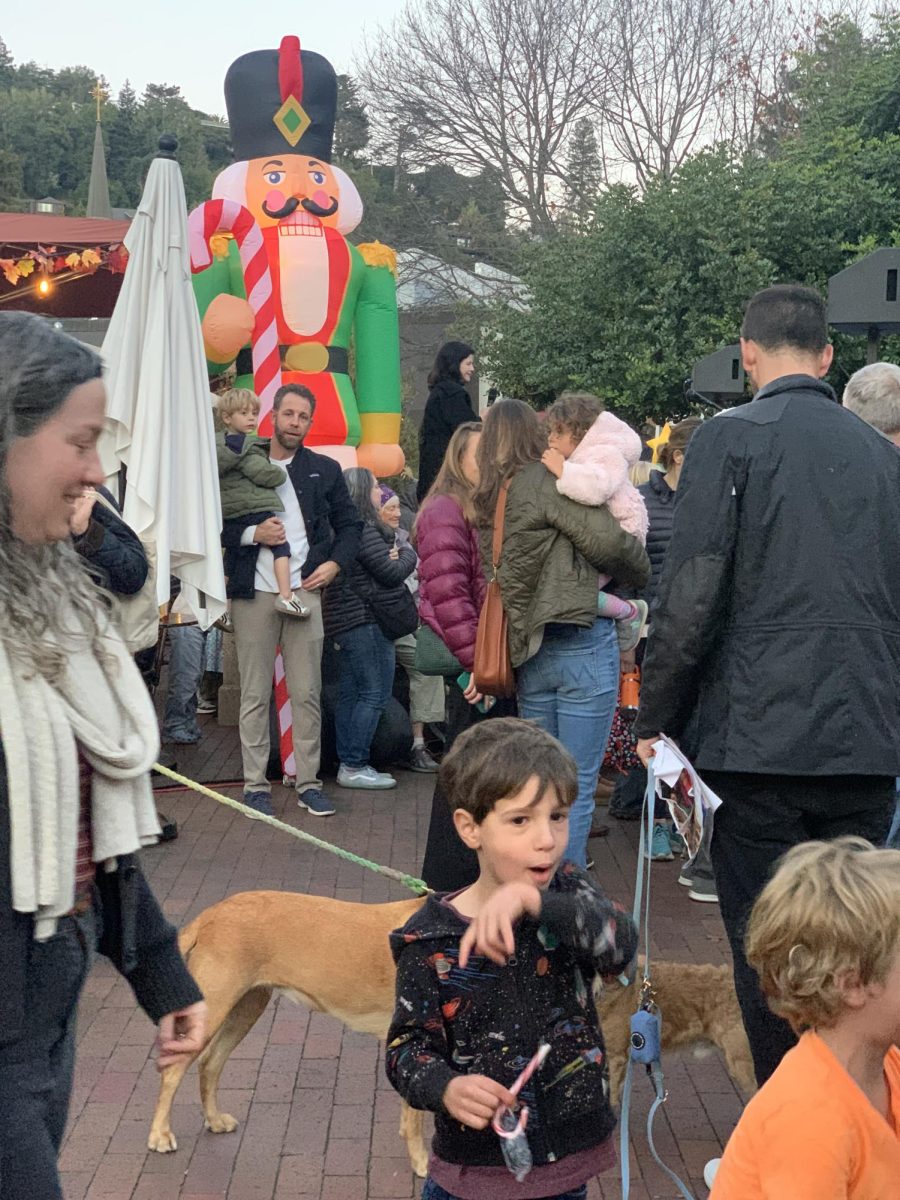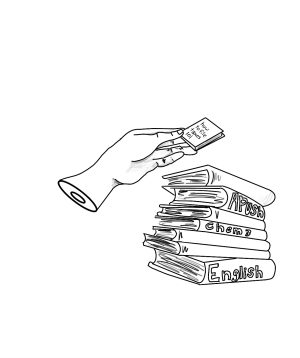A broken family and heart; the impact of divorce on children’s love lives
March 28, 2023
“I hate when my parents kiss, it’s so embarrassing!” a friend exclaimed as I smiled, though secretly I found myself in shock.
I felt as though I had forgotten the possibility of parents’ love enduring, as divorce seemed such a commonplace in my life and many others. The dissolution of my parents’ marriage and the absence of their romantic love throughout my childhood significantly altered the way I think about love and what it can entail.

Left with a broken home and heart, children whose parents fall victim to divorce may experience diverse effects through their own trials of love. While the child’s material adjustments are frequently stressed, such as traveling between two homes, the long-term mental implications of a broken home must also be analyzed. Having their foundation of their home life split, will children crave or resent love?
The conditions and reactions to a divorce will determine the extent and type of impact that a child will live with. Spencer DeWoody, Wellness Coordinator and licensed therapist, acknowledged how the circumstances of a divorce can lead to different implications for children.
“It really depends on how the married couple ends the relationship. If there still is conflict and every time mom drops you off at dad’s house she’s saying negative things about him, you might have a certain view of men that you wouldn’t have previously exhibited,” DeWoody said.
A Redwood student, who wishes to remain anonymous and will be referred to as Maya, whose parents recently divorced, added to this possibility of warped perceptions due to divorce, claiming that her parents’ relationship and its romantic failure led her to idolize and then mistrust love.
“My parents were middle school sweethearts, and I grew up with a perspective that was significantly impacted by that. It led me to want to meet someone when I’m young, to fall in love and build a loving and trusting relationship,” Maya said. “I have a boyfriend now and I think that my parent’s separation definitely made me more anxious and distrustful.”
Additionally, the disappearance of love and stability brings chaos, and in certain conditions, can fuel internal hatred as children may regard themselves as products of a failed romantic connection. DeWoody explained the false guilt children may possess if they had demonstrated any disruptive behavior prior to the split.
“[Kids] think, ‘what did I do wrong?’ ‘If I had changed something, would my parents still be together?’” DeWoody said.
Children who blame themselves for their parent’s divorce can be increasingly hesitant to pursue their own relationships. Maya explained the confusion and fear children may feel about their own relationships as a result of their parent’s actions.
“If the actions of one of your parents ends the relationship, I think kids can start to think ‘if my parents can do this, what am I capable of?’ One of my biggest fears is hurting the people I love, and that definitely stemmed from my parent’s divorce,” Maya said.

Furthermore, unsuccessful attempts at marriage can influence kids to stray away from romantic relationships; they may feel that the outcome won’t produce eternal happiness. If a young person feels that marriage will only provide a source of pain and trauma, many will be hesitant to enter a relationship on their own. Opposingly, kids lacking parental attention may look for relationships to replace the love they did feel in their home. DeWoody explained the reliance on one or both parents, and how without their presence, children may look for a dependent figure elsewhere.
“What can happen in a divorce is a person that you relied on to meet your needs is no longer available at all times. That could make [somebody] want to latch on to someone else in order to fill that intimate void in [their] family system,” DeWoody said.
Similarly, Maya explained that after the divorce of her parents she quickly accepted available love despite it slowing her recovery from the split.
“Right after my parents got divorced, I jumped into a relationship, but I don’t think I was in the right mindset at the time. At the moment, I was focused on his problems and his issues to forget about mine,” Maya said. “I didn’t want to bother anyone with my problems, and I think that comes from a position of my parents splitting up, as you don’t want to share something that could potentially become problematic.”
Furthermore, despite best efforts, children of divorced parents may feel discomfort when confronted with the reality of their parents meeting a new romantic partner. A step-parent can create resentment towards their parent falling back into love with someone new, and a broader unacceptance of love altogether. Though not a replacement for the other parent, this new figure has different values, rules and ways of loving, which can all lead to strife in the home. Children may also feel bitter toward a new figure as a result of less parental attention. Maya reflected on this experience of a lack of acceptance towards parents’ new partners.
“I think when, for example, a child meets their father’s new partner, they can think that he can ‘do better’, but that may be a subconscious resentment of this new figure just not being their mother,” Maya said.
Due to all of these elements of divorce and how they diversely impact children, research shows that divorce is more common among those whose parents are divorced. An elite law firm from San Diego, Wilkinson and Finkbeiner, emphasized this phenomenon.
“Certain studies have shown that daughters of divorced parents have a 60 percent higher divorce rate in marriages than children of non-divorced parents, while sons have a 35 percent higher rate,” the firm mentioned in a recent compilation of research.
While it may be more common, it is important to understand that finding love after a family’s divorce is not impossible. Trials of relationships can shed light on avoiding the mistakes of your parents, as Maya remarked that her current relationship has released her fears of love and provided her true happiness despite obstacles.
“When you find a safe person and really connect with them, although the trust issues or traumas will still be prevalent, it’s so freeing to know someone loves you as much as you love them,” Maya said.







